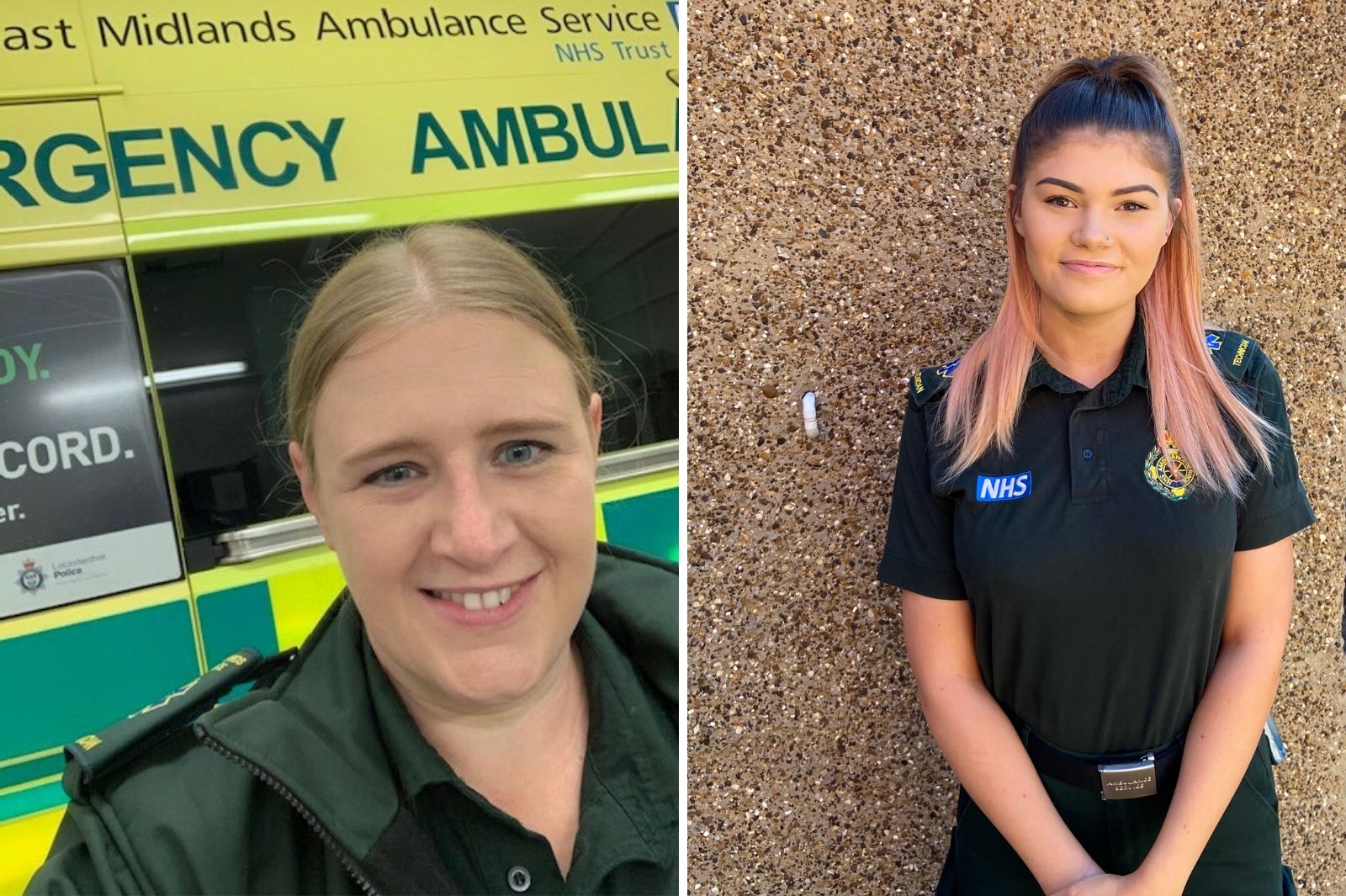Pandemic Paramedics. Students talk about ambulance lockdown
Date 11.06.2020
11.06.2020
University health students have been busy throughout lockdown, with those from Nursing, Occupational Therapy and Midwifery providing the health service with much needed support.
Our Paramedic Science Foundation programme year 2 students have been employed by East Midlands Ambulance Service as Technicians receiving payment, working part-time around their studies.
We caught up with two of them to see what their experience of being on the pandemic frontline has been like.
Felicity Hubbard – from Nuneaton, Warwickshire – has three young children at home and is training to be a paramedic after spending 10 years as a primary school teacher.
“So far, I’ve worked about four shifts and everyone asks me the same question and I give them the same answer – I haven’t seen a single Covid-19 patient! I’ve seen patients I would expect, children with asthma, someone with a high heart rate, people with back pain, during relatively steady days.
“I decided to retrain as a paramedic after being a primary teacher. For me, the job changed dramatically and the children in my class became statistics and numbers, not people. It wasn’t the job I started. I definitely feel happier wearing green these days. I feel more part of a team and a cog in a bigger system. In the future I hope to move into the education of paramedics and ambulance staff, so I can utilise both career skillsets.
“Studying has been a juggle, if I’m honest. I have three young children and, given my previous career, I wasn’t happy to just let them play for 10 weeks of lockdown! Instead I have taught them every day. Trying to fit in my study around them has been very difficult. This week my twins have gone back to school so I just have my eldest at home (he’s nine). This has made life a lot easier with online lectures and essays due in and exams imminent.”
Anna Leitch – originally from Amersham, Bucks – was on shift during lockdown after a study gap of several months:
“I hadn’t been on an ambulance since placement last October, so it was quite a jump going back into working on one. We have a lot more responsibility as a technician compared to being a student – and we can also drive the ambulances now, which is a lot of fun.
“I haven’t seen a huge difference in the volume of calls we attend compared to before lockdown, however some colleagues working full time stated they noticed a drop in calls. It’s important to remember that people can still phone an ambulance if they are experiencing chest pain or stroke-like symptoms, for example.
“One thing I have noticed is that most of the ‘jobs’ I attend are related to mental health, such as people feeling depressed, lonely, or not coping well with the effects of lockdown. I just hope that those who are struggling will reach out to people and remember that they are never alone.
“It can get quite hard to hear what the patients are going through as some of them are really struggling and it’s difficult not to empathise and get emotional afterwards. I’ve found that talking to your crewmate after a job is helpful – you can have a bit of a debrief and talk about what’s affected you. My priority for MH jobs is making sure the patient feels safe and listened to, even if they don’t agree to get any help or come to hospital with us I want them to be able to know that they can talk to us and that we’ll be understand and unbiased.”